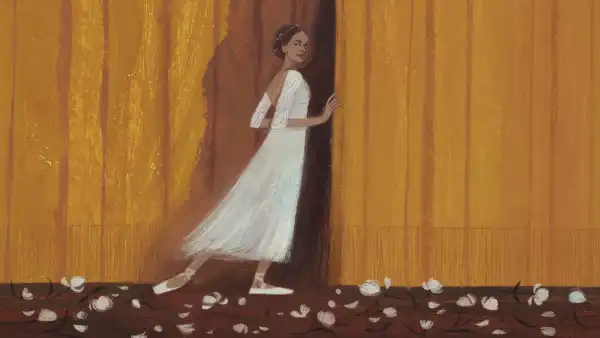
Save this storySave this storySave this storySave this storyYou’re reading Infinite Scroll, Kyle Chayka’s weekly column on how technology shapes culture.
In the summer of 2009, a shambolic Los Angeles band called Edward Sharpe and the Magnetic Zeros released a single titled “Home.” A romantic duet between the group’s founder and lead singer, Alex Ebert, and his bandmate and sometime girlfriend, Jade Castrinos, it sounded like a parody of a folk standard, with whistling, jangling tambourine, and lyrics such as “Well, holy moly, me oh my / You’re the apple of my eye.” The song climbed Billboard’s U.S. alternative charts, but, more important, it left a mark on the American psyche, turning the band into one of those one-hit wonders that stands in for the vibe of an entire era. If you were living in Brooklyn during that time, in the cranking furnace of the faux-lumberjack, mustachioed, Mason-jar-clutching, acoustic-guitar-strumming hipster Zeitgeist, the Magnetic Zeros were ubiquitous. By 2011, the track had been used in commercials for the N.F.L., Microsoft, and Levi’s. Even Pitchfork, which gave the album on which the single appeared a score of 4.1 out of 10, allowed that “Home” was worthy of attention. As the economic casualties of the 2008 financial crisis reverberated, the song captured an accessible vision of American domesticity. It made you want to bail on the impossible job search and start a commune somewhere.
“Home” represented a mode of earnest self-expression that was utterly of its time; there was no irony or self-awareness behind the band’s D.I.Y., travelling-circus vibe. Ebert styled his hair like a cult leader’s, with a bushy beard below and a braided-mullet situation on top, and he took to wearing an unbuttoned white blazer over his bare chest. Castrinos’s voice was twee and naïf, the aural equivalent of a bob haircut and a polka-dot skirt worn to a Williamsburg dive bar. From the vantage of today, when the cultural lingua franca leans toward an incoherent, chronically online nihilism, it all appears rather alien—which is why a clip from the band’s 2009 performance for NPR’s Tiny Desk concert series has been electrifying the internet over the past week. The footage surfaced when the children’s-book author Justin Boldaji shared it in response to a (now deleted) prompt on X requesting the “worst songs ever”; Boldaji included the decisive caption “Worst song ever made.” The post is now nearing a hundred million views and inspiring paroxysms of millennial self-reckoning. Hailing from a time before the relentless onslaught of social media, Trumpian politics, COVID, and artificial intelligence, the Magnetic Zeros’ prelapsarian sincerity now appears disastrously blithe. For better or worse, the band members didn’t know what was coming; they possessed an almost jealousy-inspiring innocence.
Driving the clip’s virality is a simultaneous disgust at and attraction to the artifacts and styles now known as millennial cringe. The disgust stems both from that aura of obliviousness and from a retrospective knowledge that the sincerity of late-two-thousands indie music was quickly co-opted into a more commercial version of itself. Even in 2009, Edward Sharpe and the Magnetic Zeros appeared cynical and trend chasing compared to the likes of Sufjan Stevens or Arcade Fire; Ebert had previously led an electro-pop band called Ima Robot, but pivoted in a folk direction when that group failed. The Magnetic Zeros came to be associated with “stomp-clap-hey” music, a term coined for the folk revival of the mid-twenty-tens, as practiced by bands such as Mumford & Sons, Of Monsters and Men, and the Lumineers. (The Lumineers’ 2012 song “Ho Hey,” featuring banal lovelorn lyrics and literal stomping, is, if anything, much worse than “Home.”) These other bands were significantly more financially successful than the Magnetic Zeros. Their music provided a suitably self-important soundtrack as Great Recession-era artisanal hipsterdom faded into the careerist hopefulness of the latter Obama years, when Everlane minimalism supplanted lumberjack plaid.
That moment passed, too, and gave way to our ongoing era of political, economic, and technological polycrisis; now Americana vibes have become associated with resurgent MAGA nationalism and isolationism. Hence the persistent attraction to the rustic, unmediated emotion of the Magnetic Zeros clip and its ilk. On TikTok, you can find montages of hipster imagery under the hashtag #2010snostalgia, including one eulogizing summer, 2012, “when life felt like an indie movie.” The images are all heavily filtered, as on early Instagram, and everyone in them has bangs. One TikTok simply features a series of yellow-tinted photos taken at Starbucks in 2010; it has nearly a hundred and fifty thousand likes. Millennial commenters express a desire to rewind to that era of their lives; younger posters wish that they could have lived through it in the first place. Like “Home,” these other relics hark back to an unencumbered life outside of our performative digital panopticon. As a bit of internet-vernacular wisdom puts it, “I am cringe but I am free.” Alex Ebert expressed as much in a recent monologue that he posted to Instagram, responding to the “Home” resurfacing. Through the music, he wanted to spread “porous happenstance incidentalism,” he said, conjuring some classic hipster pretension. In other words, the track was intentionally slipshod. “If the bones let the song survive context . . . it’s a good song,” he concluded.
However much people love ragging on “Home,” it could be that millennial sincerity is tiptoeing back into fashion. The song reminded me of another, earlier twee-pop track by the British band Noah and the Whale, from 2008, called “5 Years Time.” It was also a duet, between the group’s front man, Charlie Fink, and the singer-songwriter Laura Marling, complete with whistling and nursery-rhyme lyrics: “sun, sun, sun,” “fun, fun, fun.” (After Marling and Fink broke up, she began dating and performing with Marcus Mumford, of Mumford & Sons, whose guitarist, Winston Marshall, eventually departed over his political views and became an outspoken supporter of Trump policies. Everything is connected.) Then, out of the blue this year, “5 Years Time” made a comeback as the soundtrack to a climactic moment in the new “Superman.” The seventeen-year-old mandolin-and-violin tune that millennials played with anticipatory nostalgia during college is now accompanying social-media video clips about the DC Universe, its cringe wholly recuperated as commodity. ♦
Sourse: newyorker.com







